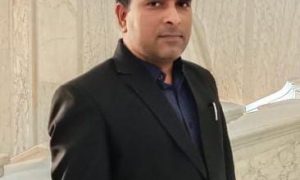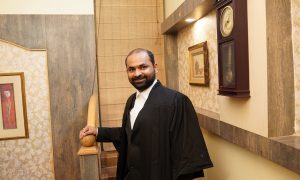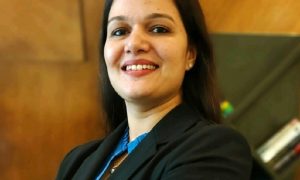Tom Valenti is a Chicago based conflict resolution specialist offering mediation, arbitration, and facilitation services and training, globally.
A certified mediator, Tom has conducted numerous mediations involving civil, commercial, interpersonal and workplace matters. He has mediated and trained extensively, both nationally and internationally, in jurisdictions all over the world.
Tom is a member of several Bar Associations, including the American, Chicago, Illinois and Indian Bar, and is a co-founder and former Board Member of Mediation Beyond Borders.
A member of the Chartered Institute of Arbitrators, Tom Valenti is also an Arbitrator on the Public Panel at FINRA and is an approved Arbitrator and Mediator for several governmental and regulatory bodies, including the Circuit Court of Cook County, The National Arbitration Forum and is on the Advisory Board for The Association of Mediation Assessors, Trainers and Instructors.
Extensively trained himself in all aspects of dispute resolution, Tom’s accreditations include Conflict Transformation Skills Training, focusing on Systems Dynamics, ABA International Family Mediation Training including Hague Convention Child Abduction cases, Circuit Cook County Annexed Arbitration and Mediation Training Programs. Tom also holds a Mediation Certification at The Institute for Conflict Management and is a Board Member and Trainer at The International Academy of Dispute Resolution.
In this interview we talk to him about:
- Skills of a good mediator
- Lacunae in the Indian ADR system
- Making a career in ADR
- Online arbitration in India
HOW WOULD YOU LIKE TO INTRODUCE YOURSELF TO OUR READERS?
I am an attorney, mediator, arbitrator, facilitator and trainer. I have been extensively trained in all aspects of Dispute Resolution. I am a former Board Member of Mediators Beyond Borders International (MBBI]. I have an interest in understanding the issues raised with cross-cultural disputes. I gave the Keynote Address on Interfa`ith and Multicultural Dialogue at the Dispute Resolution conference at the Ismaili Center, London, in May 2016. I organise and facilitate dialogues on multicultural issues. I believe that across time and cultures stories connect and can change people, and in that spirit, hosts Tenx9Chicago, a storytelling platform where true experiences are shared. My interests are enhanced by his work with The International Academy of Dispute Resolution (INADR), which is a charitable organisation set up to further the interest of mediation amongst law students globally. I have judged and trained at numerous International legal, negotiation, arbitration, and mediation competitions. I have travelled to the UK, Dubai, India and Europe to train and teach courses in Negotiation, Mediation and Arbitration. I have been trained in Peer Mediation and have trained peer mediators. I have also acted as a consultant to “Online Peer Mediation Program” a platform for practising their peer mediation skills by participating in online peer mediation simulations with other students and their trainer
I am also an organiser of the Global Youth Development Initiative, a mentoring program for international students.
WHAT FACTORS LED YOU TO PURSUE A CAREER IN ADR?
As a trial lawyer in Chicago, I always tried to maintain solid relationships with my adversaries. I was asked by my adversaries in the legal community in Chicago to mediate cases that they were working on. I found that I enjoyed the experience. After some time, I decided to get formally trained as a mediator. Eventually, I fully gave up litigating and now focus only on providing services as a neutral.
WHAT IS THE SKILL SET TO BECOME A SUCCESSFUL MEDIATOR?
Aside from the technical skills that we teach in mediation training, the most beneficial skill is to be a good listener, followed by having patience, being trustworthy and tactful.
HOW IS MEDIATING A DISPUTE DIFFERENT FROM ARBITRATING A DISPUTE?
In mediation, unless hired as an evaluative mediator, we do not recommend a solution or offer specific solutions. On the contrary, in arbitration that is the specific assignment undertaken.
YOU ARE A MEMBER OF VARIOUS ARBITRATION AND MEDIATION ASSOCIATIONS ALL OVER THE GLOBE. HOW CAN ONE ACCOMPLISH THAT?
Many of the associations are just fee-based memberships. However, to be on a “panel” or “board” you must demonstrate an expertise and skill level as well as some specific experience.
YOU HAVE CONDUCTED ARBITRATIONS ALL AROUND THE WORLD. WHAT LACUNAE DO YOU FEEL IN ARBITRATIONS CONDUCTED IN INDIA? HOW CAN THE INDIAN SYSTEM IMPROVE?
It is pretty well accepted that the Indian arbitration system needs to have some changes that result in expeditious hearings, prompt awards and a cost-efficient, fair process employed by the arbitrator. These are all teachable processes. It will come down to additional training, arbitral institutions, that create appropriate rules, arbitrators who will follow the rules and advocates and parties insisting on the fair application of all of this.
IF I WANT TO BE A GREAT ARBITRATOR WHICH UNIVERSITY SHOULD I GO TO? WHICH COURSES WOULD YOU RECOMMEND?
I am not sure any institution can create a great arbitrator. You need a sound legal background in commercial law, experience in arbitrating matters, and a fair temperament. Indian students have always been attracted to the Queen Mary & King’s in London, MIDS in Geneva is well respected, and any of the Ivy League law schools in the USA.
CAN ONLINE ARBITRATION BE IMPLEMENTED TO A GOOD EXTENT IN INDIA? HOW?
I am a fan of technology and believe that this offers the best opening for younger lawyers to take a foothold in a speciality. I do not think for long hearings that the entire process can be online, but there are many opportunities to use online tools for taking testimony, holding shorter pre- hearing matters and conferences.
WHO ARE THE STALWARTS IN ARBITRATION THAT YOU FOLLOW?
There are many excellent arbitrators. If forced to choose, and in the interest of gender equality I would suggest people track Gary Born and Jean Kalicki.
HOW IMPORTANT IS LLM IF ONE WISHES TO PURSUE A CAREER IN ADR?
In the USA, not at all because of our legal education system. In other countries where there is an abbreviated educational path to practicing law, comparatively, I think it has greater value.
HOW CAN ANY STUDENT LOOKING TO PURSUE A CAREER IN ADR GET IN TOUCH WITH YOU AND ENROLL IN YOUR TRAINING CLASSES?
I am very available, through the common social media channels, and can be reached by email at [email protected]
HOW DO YOU KEEP YOURSELF UPDATED WITH THE LATEST ADR ISSUES, NEWS AND CASES?
I am forever, on a daily basis, reading the latest news, case reports and journals. Also, I regularly attend legal seminars both in person and online. There is an endless supply of material for all of us to use to keep our skills intact and in pace with a rapidly growing part of the law.
WHAT MESSAGE WOULD YOU LIKE TO SHARE WITH YOUNG LAWYERS AND LAW STUDENTS LOOKING FOR A CAREER IN ADR?
I think you are on the proper path in pursuing studies in ADR. There is no doubt that these skills will benefit you in every area of law and in life as well. So take advantage of every opportunity to participate in moots and other competitions. Join ADR cells and encourage others to spread the awareness of ADR tools, not only in the legal profession but also in your communities. In a world that has made the cost of a dispute in terms of time and money unreachable to many, we as a legal community owe it to society to make justice more accessible, and ADR is one of the best ways to increase access to justice.
























